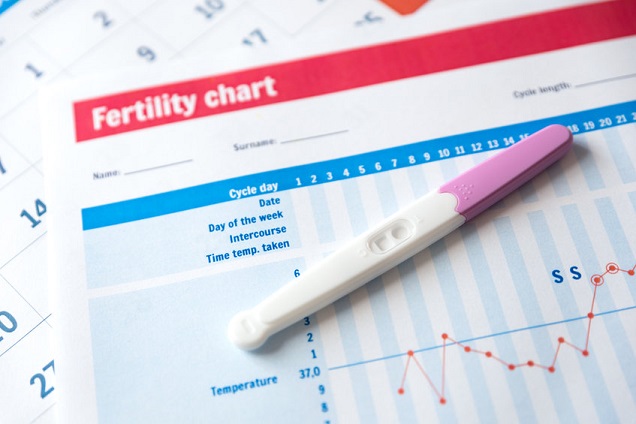What is Fertility Testing?
Jan 10, 2023

The topic of fertility testing has become very popular in the last few years. When you hear the term “fertility testing”, most people are referring to a blood test called AMH or anti-mullerian hormone.
AMH is a hormone released by cells that live outside of each follicle (fluid-filled sac containing an egg) on the ovary. Each month, our ovary releases a group of eggs. The number of eggs released is directly proportional to the number of eggs we have left. While we don’t know exactly how many eggs are left in the ovary, we know that the more eggs released, the more we have left and the fewer eggs released, the fewer we have left. Once we are out of eggs, we are in ovarian failure, otherwise known as menopause.
By looking at AMH, we get an idea of how many eggs are being released from the ovary. This number is not perfect and can vary a little each month. AMH does not tell us how many eggs are left but does tell us if someone is average, above average, or below average for their age group.
AMH can be a beneficial number when planning for the future but it does not impact natural fertility. This means that if you are actively trying to get pregnant, a low AMH does not impact your natural chance of becoming pregnant each month.
Should I have my fertility tested?
Depending on who you ask, you will likely get a different answer. ACOG (the American College of Obstetrics and Gynecology) does not recommend fertility testing in those who are not trying to get pregnant. Their thoughts are that low rates of ovarian reserve (otherwise known as the number of eggs you have left) are not correlated with natural fertility, so the results of this testing are often more stressful than helpful.
That being said, there are several Obgyn’s and reproductive endocrinologists who disagree because knowing this information could give you the opportunity to make different decisions going forward.
When considering testing your fertility, ask yourself, “what am I going to do with this information?” If your ovarian reserve came back low, would you consider trying for children sooner? Consulting with a fertility doctor? Freezing your eggs? Be comfortable knowing you may need donor eggs? If any of these answers are yes, then fertility testing may be an appropriate option for you.
What can impact the results of my AMH?
One important factor when testing AMH, is if you’re on the birth control pill. In a normal menstrual cycle (not on birth control), the brain releases a hormone called FSH about midcycle, which stimulates one of those eggs to grow and ovulate. Birth control pills work by preventing that hormone release. Your ovary still releases a group of eggs each month but rather than ovulating, all of the eggs die. Birth control is not harmful to fertility but it does not help preserve it either. Sometimes, when using the birth control pill for a long period of time, the cells on the ovary that produce AMH, can stop producing as much. This is something that reverses after stopping the birth control pill but can potentially give us a falsely low AMH value.
If you are taking the birth control pill and your AMH is normal, this is very reassuring and a reliable result. However, if it is low, we consider that those results may not be accurate and recommend repeating the test after coming off the pill for 2-3 months.
Can I test my fertility at home?
There are now several options to test your fertility at home. If this is your testing of choice, you should always review the results with your Obgyn.
My AMH is low, what should I do next?
Even if you don’t plan to pursue further actions, at the very least you should discuss the results with your Obgyn or ask for a referral to consult with a reproductive endocrinologist (REI). That way, you are aware of all of your options and can make the best decision for you and your family.
Written by Emily O'Keeffe, NP:
Emily is a Colorado native and joined Red Rocks OB/GYN (a division of OB/GYN Affiliates) in July of 2020. She began her medical career as a CNA in 2010 and worked with post-operative spine patients. She earned her undergraduate degree from Denver College of Nursing in 2013 and transitioned into a nursing role in the Emergency Department at Swedish Medical Center, where she spent the majority of her nursing career. She then earned her Master's degree at Walden University and became a board-certified Family Nurse Practitioner. Emily is passionate about supporting women and enjoys being part of their preventive health and obstetrical care. She has participated in multiple medical mission trips to Haiti and Cambodia. Emily enjoys spending time with her husband and fur babies. She loves travel, champagne, plants, and live music. Schedule an appointment with Emily by visiting http://www.redrocksobgyn.com/
